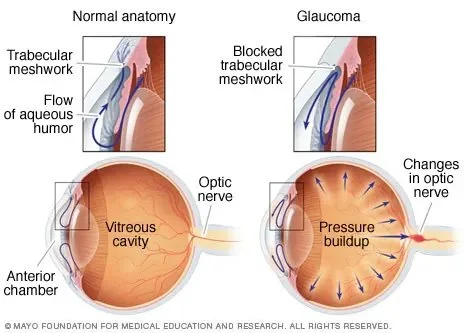Demystifying Glaucoma: What You Need to Know (Before It’s Too Late)
Imagine losing your vision—but not realizing it until it’s too late.
That’s the reality for millions living with glaucoma, often called the “silent thief of sight.” It’s the second leading cause of blindness in the world—and in its earliest stages, it’s virtually symptomless.
Here at North Manhattan Eye Center (NMEC), we believe that knowledge is power. And when it comes to glaucoma, early detection and expert care can make all the difference.
Here’s what you need to know.
What Is Glaucoma?
Glaucoma is a group of eye conditions that damage the optic nerve—the part of your eye responsible for sending visual information to your brain. Most often, this damage is caused by abnormally high pressure inside the eye (called intraocular pressure, or IOP).
There are two primary types:
Open-angle glaucoma: The most common form. It develops gradually and often without noticeable symptoms until vision loss has already occurred.
Angle-closure glaucoma: A more sudden and serious condition, often accompanied by eye pain, blurred vision, and nausea. It requires immediate medical attention.
Both types can lead to permanent vision loss if left untreated.
Image Source: Mayo Clinic
Are You at Risk?
Anyone can develop glaucoma, but some people are at higher risk. You may be more likely to develop the disease if you:
Are over age 60
Have a family history of glaucoma
Are of African, Hispanic, or Asian descent
Have high eye pressure or thin corneas
Live with diabetes, hypertension, or other chronic conditions
Have had prior eye injuries or surgeries
If you fall into any of these categories, regular eye exams are especially critical.
Symptoms: What to Watch For
One of the most dangerous aspects of glaucoma is how quietly it develops. Most people with early-stage glaucoma experience no pain and no changes in vision until significant damage has already occurred.
When symptoms do arise, they may include:
Gradual loss of peripheral vision (side vision)
Seeing halos around lights
Eye pain or pressure
Sudden blurred vision or nausea (with acute angle-closure glaucoma)
But here’s the most important takeaway:
Don’t wait for symptoms. The only way to detect glaucoma early is through a comprehensive eye exam.
How Is Glaucoma Diagnosed?
At NMEC, our glaucoma evaluations go far beyond a basic vision test. We use advanced, non-invasive tools to detect the earliest signs of the disease, including:
Tonometry: Measures your eye pressure
OCT (Optical Coherence Tomography): Provides a detailed image of your optic nerve
Visual Field Test: Checks for subtle changes in your side vision
Gonioscopy: Assesses the angle where your iris meets your cornea to determine the type of glaucoma
Our team of experts will walk you through each step with care and clarity, ensuring you feel confident, informed, and supported.
Treatment Options: Managing Glaucoma for Life
While glaucoma can’t be cured, it can be effectively managed to slow or stop further vision loss. Treatment plans are tailored to each patient and may include:
Prescription eye drops to lower eye pressure
Oral medications to support pressure regulation
Laser procedures like SLT or iridotomy
Minimally invasive or traditional surgeries to improve fluid drainage in the eye
At NMEC, our approach combines medical precision with compassionate care, ensuring you receive the right treatment at the right time.
Why Choose NMEC for Glaucoma Care?
Our team includes some of New York’s most respected glaucoma specialists, with deep experience treating both common and complex cases.
But what truly sets us apart?
Integrated EENT care: We bring together eye, ear, nose, and throat specialists to offer a more holistic view of your health.
Cutting-edge technology: Our advanced diagnostics help us catch glaucoma earlier and track it more accurately.
Personalized treatment: No two eyes are the same. That’s why we customize your care plan based on your risk factors, lifestyle, and long-term needs.
Compassion-first approach: We’re here not just to treat glaucoma, but to care for you as a whole person.
Protect Your Vision. Book Your Exam Today.
Whether you're overdue for a routine eye exam or concerned about your risk, we’re here to help.
At NMEC, we believe proactive care is powerful care. Let’s protect your vision—together.
Or call us at (212) 304-2020 to speak with a member of our team.


